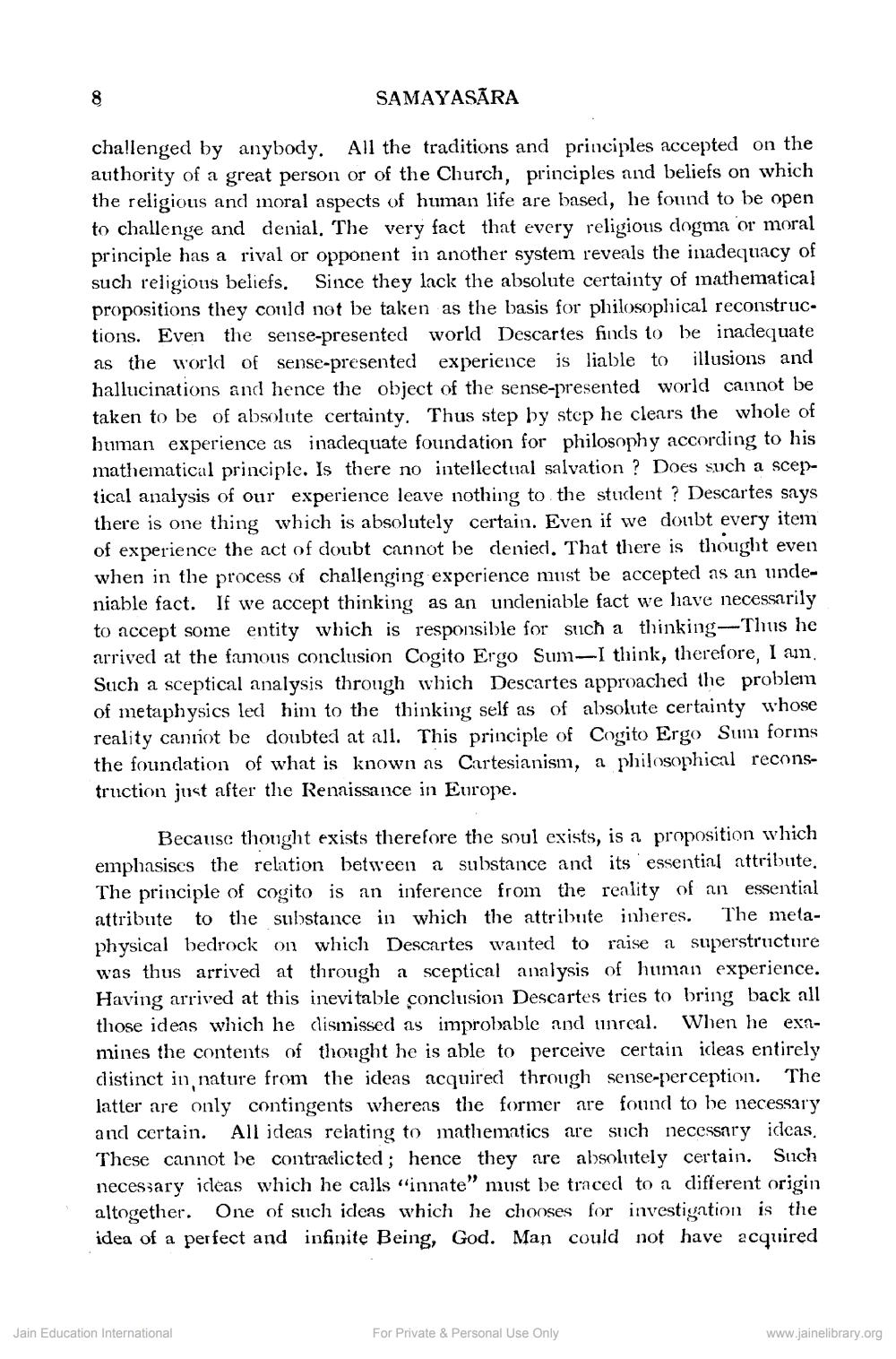________________
SAMAYASĀRA
challenged by anybody. All the traditions and principles accepted on the authority of a great person or of the Church, principles and beliefs on which the religious and moral aspects of human life are based, he found to be open to challenge and denial. The very fact that every religious dogma or moral principle has a rival or opponent in another system reveals the inadequacy of such religious beliefs. Since they lack the absolute certainty of mathematical propositions they could not be taken as the basis for philosophical reconstructions. Even the sense presented world Descartes finds to be inadequate as the world of sense-presented experience is liable to illusions and hallucinations and hence the object of the sense-presented world cannot be taken to be of absolute certainty. Thus step by step he clears the whole of human experience as inadequate foundation for philosophy according to his mathematical principle. Is there no intellectual salvation ? Does such a sceptical analysis of our experience leave nothing to the student ? Descartes says there is one thing which is absolutely certain. Even if we doubt every item of experience the act of doubt cannot be denied. That there is thought even when in the process of challenging experience must be accepted as an undeniable fact. If we accept thinking as an undeniable fact we have necessarily to accept some entity which is responsible for such a thinking-Thus he arrived at the famous conclusion Cogito Ergo Sum-I think, therefore, I am. Such a sceptical analysis through which Descartes approached the problem of metaphysics led him to the thinking self as of absolute certainty whose reality cannot be doubted at all. This principle of Cogito Ergo Sum forms the foundation of what is known as Cartesianism, a philosophical reconstruction just after the Renaissance in Europe.
Because thought exists therefore the soul exists, is a proposition which emphasises the relation between a substance and its essential attribute. The principle of cogito is an inference from the reality of an essential attribute to the substance in which the attribute inheres. The metaphysical bedrock on which Descartes wanted to raise a superstructure was thus arrived at through a sceptical analysis of human experience. Having arrived at this inevitable conclusion Descartes tries to bring back all those ideas which he dismissed as improbable and unreal. When he examines the contents of thought he is able to perceive certain icleas entirely clistinct in nature from the ideas acquired through sense-perception. The latter are only contingents whereas the former are found to be necessary and certain. All ideas relating to mathematics are such necessary ideas, These cannot be contradicted; hence they are absolutely certain. Such necessary ideas which he calls "innate" must be traced to a different origin altogether. One of such ideas which he chooses for investigation is the idea of a perfect and infinite Being, God. Man could not have acquired
Jain Education International
For Private & Personal Use Only
www.jainelibrary.org




